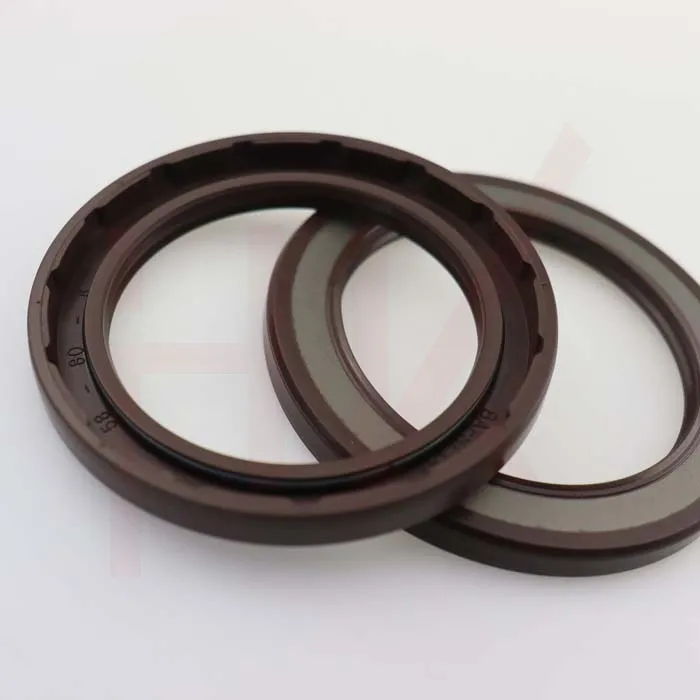Nov . 05, 2024 06:35 Back to list
hydraulic ram oil seals
Understanding Hydraulic Ram Oil Seals Function, Importance, and Maintenance
Hydraulic ram systems are pivotal in various industrial applications, ranging from construction to manufacturing. A critical component of these systems is the hydraulic ram oil seal. This article delves into the function, importance, maintenance, and troubleshooting of hydraulic ram oil seals, aiming to provide a comprehensive understanding of this essential element.
The Function of Hydraulic Ram Oil Seals
Hydraulic ram oil seals are designed to prevent the escape of hydraulic fluid from the cylinder while also protecting the internal components from external contaminants like dirt, dust, and moisture. These seals are typically located at the rod or piston interface in hydraulic cylinders and play a vital role in maintaining system pressure and efficiency.
Importance of Hydraulic Ram Oil Seals
1. Leak Prevention One of the most crucial roles of oil seals is to prevent hydraulic fluid leaks. A leak not only reduces the efficiency of the hydraulic system but can also lead to environmental hazards and increased operational costs.
2. System Longevity Properly functioning oil seals are integral to the longevity of hydraulic systems. By keeping contaminants at bay, they protect the internal components of the hydraulic ram, such as the piston and cylinder walls, from wear and tear.
3. Efficiency Maintenance Hydraulic systems rely on high-pressure fluid to operate. Oil seals help maintain this pressure by preventing fluid escape, which is essential for the overall efficiency of the hydraulic system.
4. Safety In high-pressure applications, leaks can pose significant safety risks. Oil seals help mitigate these risks by ensuring that hydraulic fluids remain contained within the system.
Types of Hydraulic Ram Oil Seals
There are several types of oil seals used in hydraulic rams, including
1. U-cup Seals Shaped like a 'U', these seals are widely used due to their ability to accommodate high-pressure environments while providing effective sealing.
3. Lip Seals These consist of a flexible lip that hugs the shaft, ensuring a tight seal against the hydraulic fluid while allowing some axial movement.
hydraulic ram oil seals

Each type of seal has its unique characteristics and is chosen based on specific operational requirements.
Maintenance of Hydraulic Ram Oil Seals
Regular maintenance of hydraulic ram oil seals is vital for the efficient operation of hydraulic systems. Here are some key maintenance practices
1. Routine Inspections Regularly check the seals for signs of wear, cracks, or deformation. Early detection of issues can prevent costly downtimes.
2. Fluid Quality Ensure that the hydraulic fluid used in the system is of the appropriate type and quality. Contaminated or incorrect fluids can degrade the seals prematurely.
3. Proper Installation Ensure that oil seals are installed correctly. Improper installation can lead to early failure and leaks.
4. Environment Monitoring Keep an eye on the operating environment for factors like temperature and humidity, which can affect seal performance.
Troubleshooting Common Oil Seal Issues
Despite regular maintenance, issues with hydraulic ram oil seals can still arise. Some common problems include
1. Fluid Leakage This is often the most noticeable issue, indicating a failed seal. This can result from wear, contamination, or improper installation.
2. Excessive Wear If oil seals are wearing out faster than expected, it may indicate that the system is operating outside recommended parameters, such as excessive temperature or pressure.
3. Installation Errors Incorrect installation can lead to misalignment and, subsequently, seal failure. It's crucial to follow manufacturer guidelines during installation.
Conclusion
Hydraulic ram oil seals are an essential component of hydraulic systems, ensuring leak prevention, protecting internal components, and maintaining overall system efficiency. Understanding their function, importance, and maintenance can lead to improved operational performance and system longevity. Regular inspections, proper fluid choice, and diligent maintenance practices are key to ensuring these seals provide reliable service. In a world increasingly reliant on hydraulic systems, the role of oil seals cannot be overstated, making their careful management a priority for all operators.
-
TCN Oil Seal Metal Ring Reinforcement for Heavy Machinery
NewsJul.25,2025
-
Rotary Lip Seal Spring-Loaded Design for High-Speed Applications
NewsJul.25,2025
-
Hydraulic Cylinder Seals Polyurethane Material for High-Impact Jobs
NewsJul.25,2025
-
High Pressure Oil Seal Polyurethane Coating Wear Resistance
NewsJul.25,2025
-
Dust Proof Seal Double Lip Design for Construction Equipment
NewsJul.25,2025
-
Hub Seal Polyurethane Wear Resistance in Agricultural Vehicles
NewsJul.25,2025
-
The Trans-formative Journey of Wheel Hub Oil Seals
NewsJun.06,2025
Products categories
















